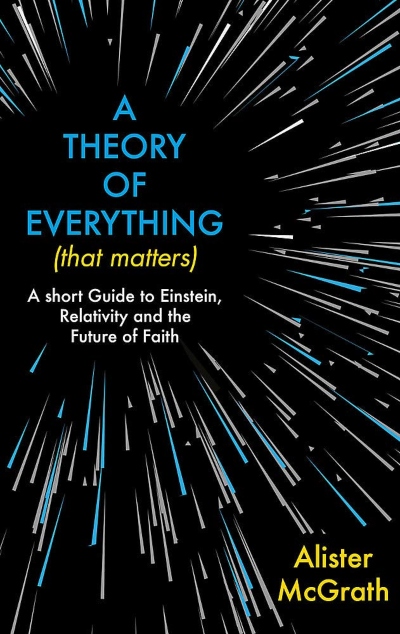A Theory of Everything (That Matters) by Alister McGrath
Accessible explanation of Einstein's key work, and shows his comments on the nature of faith and religion are far more subtle than those of many of his critics
 A Theory of Everything (That Matters)
A Theory of Everything (That Matters)
A Short Guide to Einstein, Relativity and the Future of Faith
By Alister McGrath
Hodder & Stoughton
ISBN: 9781529377958
Reviewed by: John Biggs
The year 1905 was an astonishing one for Einstein. Without holding any academic position, he published four papers with radical insights into hitherto unexplained phenomena.
First, the Photoelectric Effect where light shining on some metals generates electric current : his explanation helped to develop the field of quantum mechanics.
Second, Brownian Motion is the erratic movement of suspended particles in a liquid. This increases with temperature and decreases with the size of the particles. Einstein’s explanation forged a link with the kinetic theory of gases.
The third paper was revolutionary. It displaced Newton’s long-held theory of gravity by Einstein’s theory of special relativity and established the constancy of the velocity of light, c, in a vacuum.
Finally a fourth paper propounded the equivalence of matter and energy with the famous equation of E = mc2.
His general theory of relativity followed in March 1916. This achieved experimental evidence in 1919 in a measurement of the path of the stars travelling near the sun during an eclipse: light was bent by the gravitational effect of the large mass of the sun in accordance with Einstein’s prediction.
McGrath gives an accessible explanation of this work – without the mathematics! – in this short volume of 149 pages without any diminution of its proper academic rigour in a highly readable account. He helpfully sets the historical background of how slow the establishment world was to acknowledge Einstein’s genius. After repeated nominations for a Nobel Prize, one was not awarded until a post-dated prize in 1921, and then it was for his account of the Photoelectric Effect, with no credit for his theories of relativity. Part of the prejudice was based on Einstein’s residence in Berlin as a Jew throughout World War II: he moved to the United States in December 1932.
Universally Einstein became recognised as a genius, and because of this he was in constant demand for his comments on science, religion and ethics, and it is not always realised how much he sought to bring together these elements of the reality of life. Einstein’s approach was to treat science and religion as two distinct and different areas of human reflection, and his comments on the nature of faith and religion are far more subtle than those of many of his critics, while not allowing the concept of a personal God.
He nevertheless sought to bring together the scientific and religious understanding in the human quest for meaning, and it was his personal disappointment that he failed in his quest for a theory of everything.
John Biggs FRCS is a former President of the Baptist Union
Baptist Times, 02/10/2020